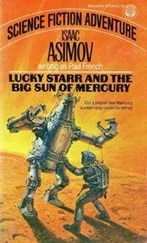Isaac Haldeman - Christ, Christianity and the Bible
Здесь есть возможность читать онлайн «Isaac Haldeman - Christ, Christianity and the Bible» — ознакомительный отрывок электронной книги совершенно бесплатно, а после прочтения отрывка купить полную версию. В некоторых случаях можно слушать аудио, скачать через торрент в формате fb2 и присутствует краткое содержание. Жанр: foreign_prose, на английском языке. Описание произведения, (предисловие) а так же отзывы посетителей доступны на портале библиотеки ЛибКат.
- Название:Christ, Christianity and the Bible
- Автор:
- Жанр:
- Год:неизвестен
- ISBN:нет данных
- Рейтинг книги:4 / 5. Голосов: 1
-
Избранное:Добавить в избранное
- Отзывы:
-
Ваша оценка:
- 80
- 1
- 2
- 3
- 4
- 5
Christ, Christianity and the Bible: краткое содержание, описание и аннотация
Предлагаем к чтению аннотацию, описание, краткое содержание или предисловие (зависит от того, что написал сам автор книги «Christ, Christianity and the Bible»). Если вы не нашли необходимую информацию о книге — напишите в комментариях, мы постараемся отыскать её.
Christ, Christianity and the Bible — читать онлайн ознакомительный отрывок
Ниже представлен текст книги, разбитый по страницам. Система сохранения места последней прочитанной страницы, позволяет с удобством читать онлайн бесплатно книгу «Christ, Christianity and the Bible», без необходимости каждый раз заново искать на чём Вы остановились. Поставьте закладку, и сможете в любой момент перейти на страницу, на которой закончили чтение.
Интервал:
Закладка:
I. M. Haldeman
Christ, Christianity and the Bible
Christ
IF NOT GOD – NOT GOOD
“Why callest thou me good? there is none good but one, that is God” (Matthew 9:17).
THE world has accepted Jesus Christ as a good man.
The evidences of his goodness are manifold.
He was full of compassion.
He never looked upon the people as a crowd. He never thought of them as a mass. He saw them always as individuals. His heart went out to them. All his impulses were to pity them, sympathize with, and help them.
He went among them. He entered into all conditions, accepted all situations. He was present at a wedding, he ate with publicans and sinners and, anon, was guest at a rich man’s table.
He saw the ravages of disease, the shame of sin, the tragedies in life.
He knew there was torture in body and anguish in spirit.
He took the mystery of pain and laid it upon his heart, until tears were his meat and his drink, by day and by night. He became a man of sorrows and an expert in grief. He took upon him the woes of the world till he was bowed and bent, as with the weight of years. The tears of sympathy grooved his cheeks, as when streams carve their way down mountain sides. Because of this men looked at him and saw neither form nor comeliness; neither was there any beauty in him that they should desire him.
He was a beneficent man.
Multitudes of men are benevolent, but not beneficent.
Benevolence is well wishing. Beneficence is well doing. He was always well doing, giving sight to the blind, healing the sick, cleansing the leper, feeding the hungry, raising the dead, unloosing the bonds of Satan – unwinding the serpent’s coil.
He was absolutely unselfish.
He emptied himself and made room in his soul for other lives. He had no office hours and never interposed secretaries or major-domos between himself and the people. He received all who came unto him – ministering without money and without price.
There is one scene that might well be painted by a master hand.
It is evening. The western sky is all aglow with the glory of the setting sun. Far up in the dome of the infinite blue, the evening star swings golden, like a slow descending lamp let down by invisible hands. The street is in half-tone. It is packed by the strangest of throngs, by the blind, the lame, the halt, the paralyzed and the leper-derelicts of humanity – borne thither on a surging tide of life in which every wave is an accent of pain; they are driven and piled up in great, quivering heaps against a door which is partly shut, as in self-defence, by the sweltering crowd within.
Jesus of Nazareth is in that house.
He is healing the sick. He is giving health, and strength, and peace to all who seek him. He turns no one away. Compassion, sympathy, beneficence, the tenderness of a mother for her helpless babe – these are the characteristics which his daily ministry revealed.
No one ever brought a charge of evil doing or evil speaking against him.
The people who followed him said, “He hath done all things well.”
Police officers sent to arrest him as a disturber of the peace found him in the midst of the people, speaking words that hushed their tumult, quieted their murmurings and gave them rest; and the officers returning to them who sent them, said, “Never man spake like this man.”
Pilate’s wife dreamed a troubled dream of him, and sent word to her husband not to lay hands on him – seeing that he was a just man. Thrice before heaven and earth – in a testimony that still echoes through infinite spaces, and is heard by listening worlds – Pilate himself proclaimed, “I find no fault in this man.”
He lifted up his voice against sin and unrighteousness.
Against nothing did he so much speak as against religious hypocrisy. Nowhere, in any record, is language so terrible, so penetrating, so hot, so full of the flame of fire and scorching analysis, scorching and burning in its denunciation of those who on the outside (in their religious profession) were like whitened sepulchres, but on the inside (in their actual lives) were full of dead men’s bones and corruption – nowhere, outside the twenty-third chapter of Matthew, does language fall with such tremendous vibration of thunderous indignation, and the accent of aroused and fully angered justice. “Ye serpents,” “ye generation of vipers,” are some of the phrases; and the words, “fools,” “blind hypocrites,” mingle again and again with the far-sounding, judicial menace, “Woe, woe unto you.”
He seemed to be dominated and controlled by one idea – the idea of God. The God thought held and moved him. He could not go anywhere, or see anything, or utter the shortest discourse, that he did not, in some fashion, connect it with the infinite Father. Was a sower sowing seed, he saw in that incident an illustration of the fact that the true seed is the Word of God, and the true sower he who casts it into the mightier ground of the human heart. Did a flock of sheep lie at rest upon the hillside, guarded by a shepherd’s care, at once he would unfold the shepherding of a Father’s love. A tiny sparrow, flying an unnoticed speck in the distant sky, or falling ground-ward with its weary flight, was a winged witness that the Father knew and saw even the smallest details of human life. A lily in its lowliness, and yet a lily in its beauty shaming a king’s array, a lily, toiling not, but upward growing, furnished him a text from which to preach the providence of God; and a wandering beggar boy far away from home and kindred, stained with sin and dark with sorrow, gave occasion for the wondrous story of the Prodigal Son and a father’s changeless and tender love.
God! God! God! this was the supreme note of his life.
On the cross he gave utterance to words which reveal the inner character of his soul.
When a man has been lied about, falsified, his good evil spoken of and his reputation assailed (as was his before the Sanhedrin – in the mock trial given him there), when such a man has been hounded from one end of the town to the other, spit upon and jibed at and, finally, nailed through hands and feet to a torturing cross; when such a man with his heart bursting (because of the impeded circulation, driving the surging, tumultuous blood back upon it), with the sun scorching his bare temples, a crown of thorns stabbing him at every helpless turn of his restless head; when such a man, under such circumstances, can rise above the wickedness, cowardice and cheap treason that have nailed him to the cross, and pray (and pray sincerely) that his guilty murderers, villainous detractors and unscrupulous slanderers may be forgiven, that man bears witness that he has, at least, a heart of good.
And it was just such a prayer which came from the parched, dry, cracked lips of this man of Nazareth as he hung upon the cross and cried out,
“Father, forgive them, for they know not what they do.”
Again he spoke from the cross.
There was standing near, a woman who had been chosen of God to give him birth. She was sobbing convulsively. She was realizing what had been foretold of her more than thirty years before – “a sword shall pierce through thy own soul, also.” Mary, the mother of Jesus, stood there, brokenhearted. Jesus turned his head and looked at John, his cousin, bidding him take that weeping mother to his home, his heart and care, and be unto her henceforth a loving son.
O the man who, in the hour of his own agony, shall remember his mother, and crown her, make her the queen of his life, and ordain that others shall love and reverence her, proclaims for himself the lustre of a manhood without spot.
Once more he spoke from the place of anguish – that moment on the edge of death. There his soul, rising from the depths of the overwhelming waves of agony, cries:
Читать дальшеИнтервал:
Закладка:
Похожие книги на «Christ, Christianity and the Bible»
Представляем Вашему вниманию похожие книги на «Christ, Christianity and the Bible» списком для выбора. Мы отобрали схожую по названию и смыслу литературу в надежде предоставить читателям больше вариантов отыскать новые, интересные, ещё непрочитанные произведения.
Обсуждение, отзывы о книге «Christ, Christianity and the Bible» и просто собственные мнения читателей. Оставьте ваши комментарии, напишите, что Вы думаете о произведении, его смысле или главных героях. Укажите что конкретно понравилось, а что нет, и почему Вы так считаете.












